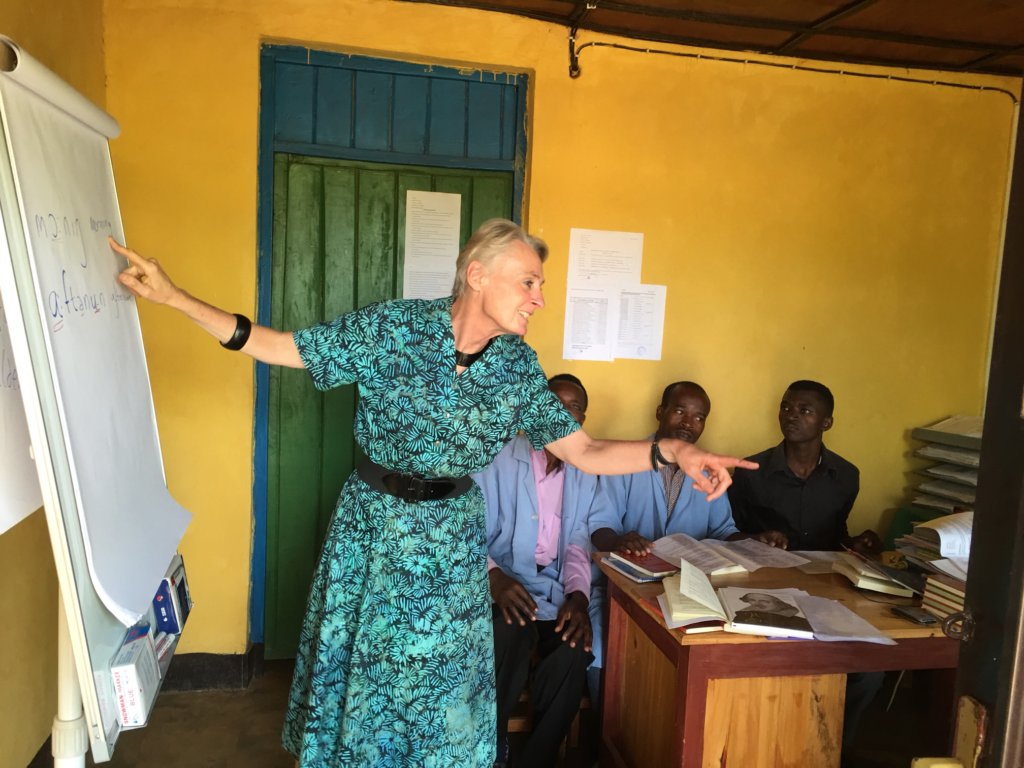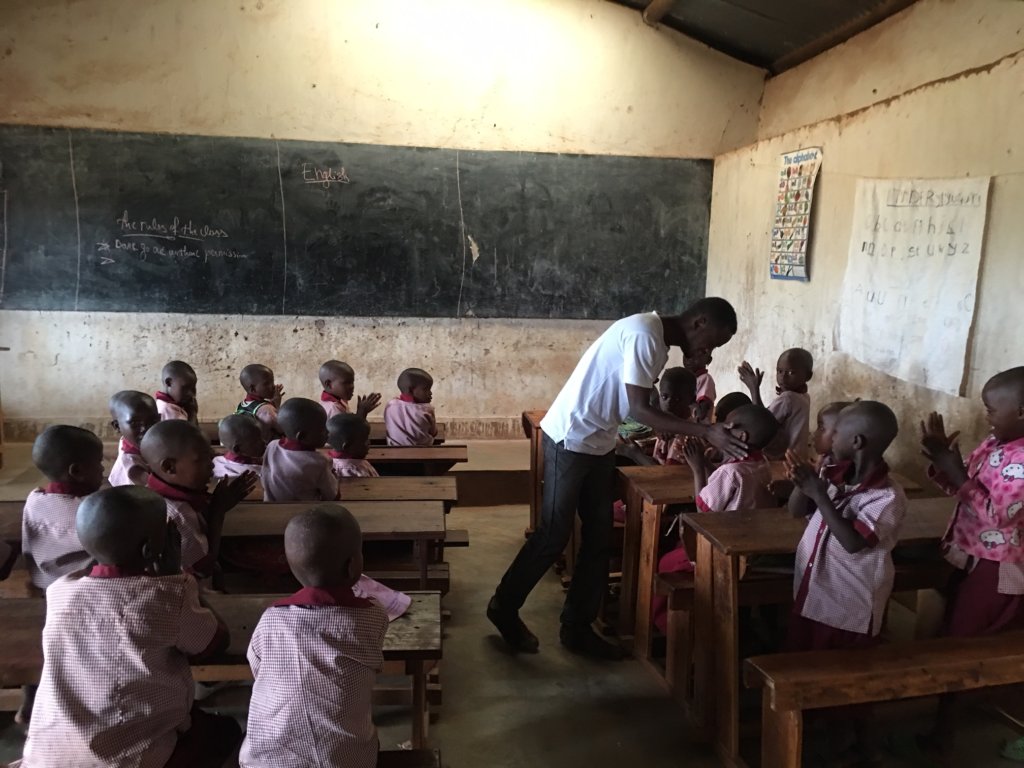By Katy Allen | Director
Education East Africa Quarterly Report
UPDATE FROM KIGALI
8th August 2016
Greetings from Kigali, Rwanda. The sun is beating down and it feels airless out on the streets. The city traffic relentlessly fumes the atmosphere and the hundreds of motorbike-taxis weave dangerously in and out. We drive out of the city, heading north, and soon we get onto the quiet mountain roads which twist and turn steeply up then steeply down. We are in the land of a thousand hills, and the scenery is green and brown with trees, crops and houses.
After about forty minutes we are in the vicinity of the four schools which are our project schools. High up the air is clean and the views are spectacular. In the classrooms and in the staffrooms our work is underway.
Back in May, I got my work permit in six working days, and my foreigners’ ID card within three working days. The processes were conducted efficiently by charming officials. I bought a second-hand car, and got it re-registered within two hours, and that involved getting a ‘tax identification number’ from the Rwanda Revenue Authority. Working here is a ‘breeze’ as the officials are efficient and fully trained in customer service. The bank has a ‘take a numbered ticket’ system and provides chairs while you wait. The longest I’ve waited so far is ten minutes. The banks are open until 8pm, the shops until around 10pm, and so the working person is fully looked after.
We are now members of the ‘Teacher Professional Development Technical Working Group’ which is organised by the Rwanda Education Board with the donor-organisations working in teacher development. This means that we are kept abreast of policies and implementation programmes, and generally who is working on what. We have forged good links with DfID (the UK Department for International Development) and the British Council, both of which are active in the primary education sector.
We had a large meeting, hosted by the Gasabo District Education Officer, with head teachers, teachers of English and representatives of parents in order to ensure that everyone is aware of the project and how it is conducted and its aims. Everyone was very enthusiastic and particularly grateful that the project is a committed, hands-on project. The schools have already been part of more general projects in which they received some initial training and a follow-up visit once a term which they lamented was not very helpful to them. We are in each school for one full day each week, conducting teacher-training with all the teachers of English together for at least an hour, and then working hand-in-hand with the teacher of P1 (the first year pupils) in the quest to teach English as a foreign language. One of the participants at the meeting put up his hand and then asked, “Madam, is this not too much work for you?”! With the drive to the schools, and the school day starting at 7.20, it is a lot of work but we have our goals and I am now sure we will work together to reach them.
The classes are large, the children are young (arguably too young to be learning a foreign language in this context) and the teachers are mostly young and not confident with their own English. The government textbooks to accompany the new curriculum are still not ready. We have our work cut out. However, the overriding factor is that the teachers and head teachers are keen to be helped, and keen to improve how they teach their pupils. They are supported well by their sector education officers and the district education officer.
We have started well, and we are monitoring our work by taking videos of classroom teaching, and asking the teachers to write their views and feelings in journal books we have provided. The key to the success of our project will be how well we can involve government officials, and to gain their commitment to take on our work if they see the benefits of it.
These are early days, but I am filled with renewed vigour as I see the prospect of helping the teachers and pupils to gain a good understanding of English as a solid foundation for their future school work.
All of you who donate are crucial to the success of our work here. Built on our years of experience working in primary education, teaching English and developing and using our NOEC English books, and given the stage of education development in Rwanda, I am certain we are in the right place at the right time with the right project.
Thank you all so very much.
Katy Allen
Director
Katy@EducationEastAfrica.org
Education is the Passport to a Self-Sustaining Life
www.EducationEastAfrica.org
Links:
Project reports on GlobalGiving are posted directly to globalgiving.org by Project Leaders as they are completed, generally every 3-4 months. To protect the integrity of these documents, GlobalGiving does not alter them; therefore you may find some language or formatting issues.
If you donate to this project or have donated to this project, you can receive an email when this project posts a report. You can also subscribe for reports without donating.
Support this important cause by creating a personalized fundraising page.
Start a Fundraiser
